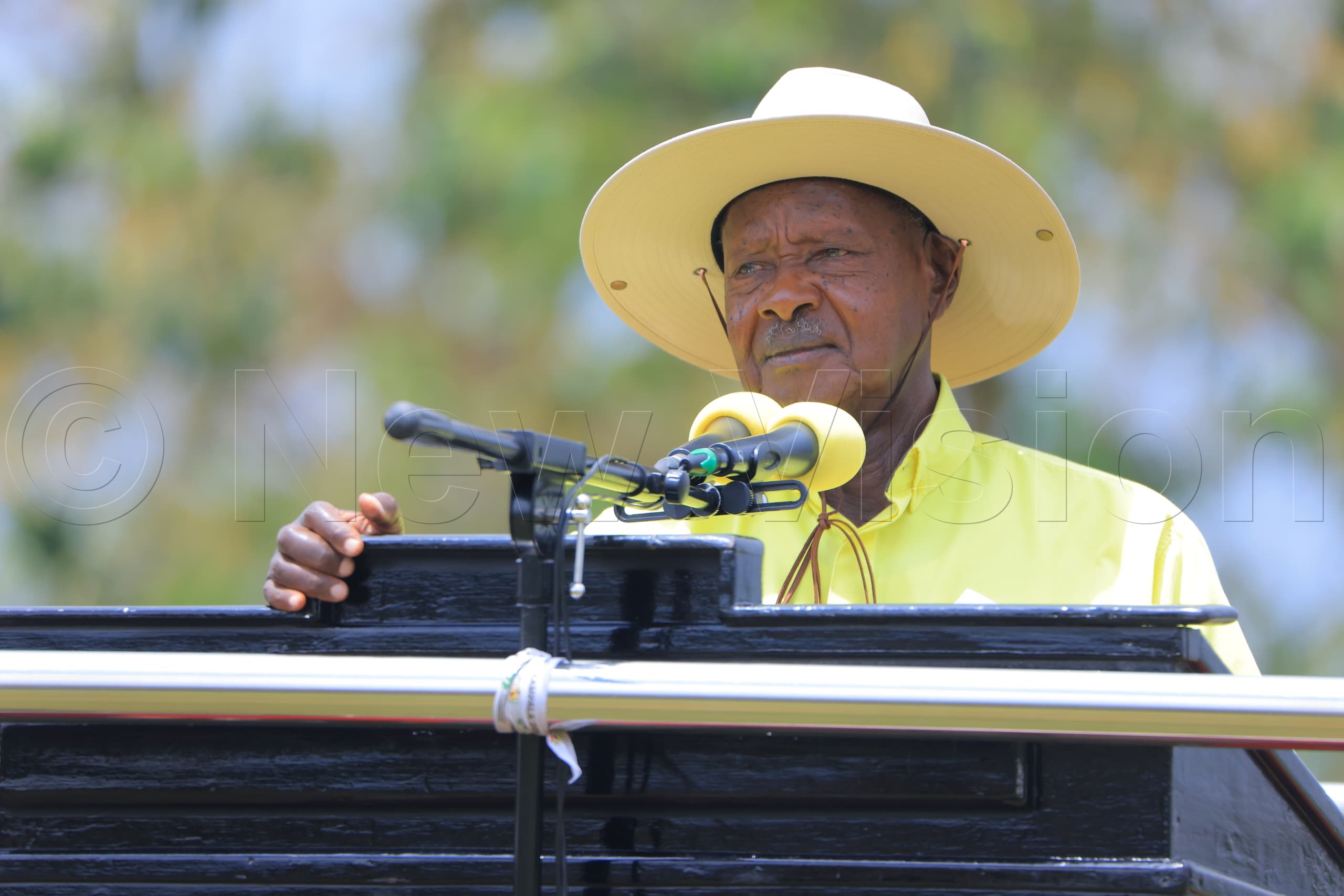Museveni campaigns in Karamoja's Kotido, Moroto
President Museveni is expected to hold his first campaign event of the day at Lomugura Primary School playground in Kotido town council at midday, before proceeding to Naitakwae Boma Grounds in Moroto for the second and final rally.
Museveni arrives for campaign rally in Karenga district. (File/New Vision/Eddie Ssejjoba)
_________________
President Yoweri Museveni is today (Monday, October 27, 2025) campaigning in the districts of Kotido and Moroto for re-election in the 2026 General Election. The two districts are part of the Karamoja region, whose residents say are facing issues they want addressed by the President, including persistent cattle rustling, stray elephants from Kidepo Valley National Park that destroy crops and compensation for stolen livestock.
He is expected to hold his first campaign event of the day at Lomugura Primary School playground in Kotido town council at midday, before proceeding to Naitakwae Boma Grounds in Moroto for the second and final rally.
The move comes after the incumbent President completed campaigns in Lango and Acholi regions last week. A day earlier, Museveni was in Karenga district, where he promised to defeat remnants of cattle rustlers.
Museveni arrives for campaign rally in Karenga district. (File/New Vision/Eddie Ssejjoba)

Museveni while campaigning in Karenga district promised to defeat remnants of cattle rustlers. (File/New Vision/Simon Peter Tumwine)
Museveni is campaigning on the National Resistance Movement party ticket under the theme: Protecting the Gains, Making a Qualitative Leap into High Middle-Income Status.
The theme focuses on safeguarding achievements over the last 39 years, including peace and development, while aiming to propel Uganda to a high-middle-income status.
In the last general election in 2021, Museveni garnered 32,310 (83.18%) votes in Kotido, while his main rival, Robert Kyagulanyi of the National Unity Platform, polled 2,823 (7.27%).
In Moroto, Museveni got 21,342 (87.35%) votes while Kyagulanyi obtained 1,417 (5.80%).
Both districts are located in the Karamoja sub-region, and agriculture is their major economic activity.
However, the majority of farmers are smallholders who grow a range of crops.
District leaders in Kotido say their focus is to raise socio-economic standards of the people through the provision of quality services in the areas of health, education and the provision of safe water.
It is hoped that these will enhance the population's capacity to sustainably exploit the natural resources and other opportunities to improve their quality of life.